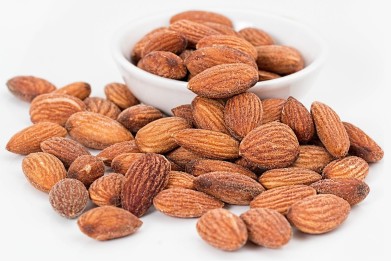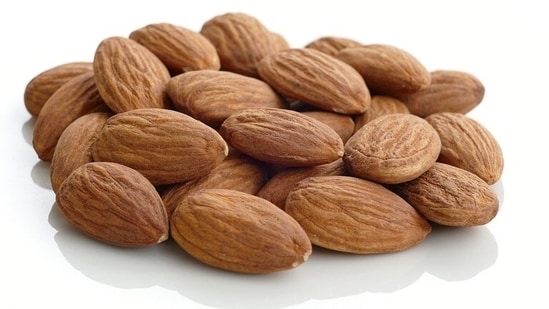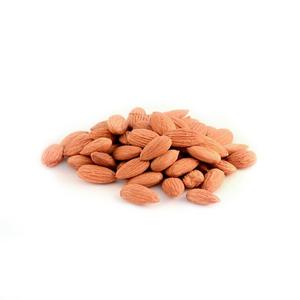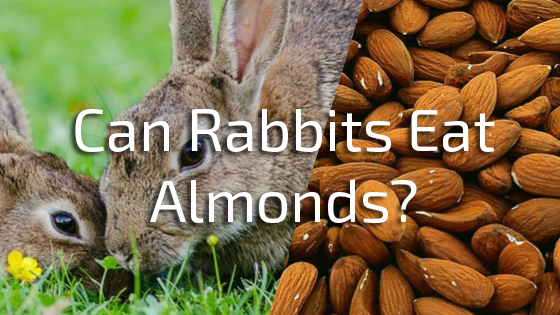Whether they’re in your trail mix, if they’re baked into your dessert, or if you prefer them raw, almonds are a popular nut across households. Although they aren’t considered diet-focused food, they are still a favorite snack, especially for people who are health-conscious and physically active. Including nuts like almonds, which are high in fat content, aren’t usually a go-to snack for health-conscious people, however since they are a superfood, almonds are pretty popular. These tasty, healthy snacks are something we all enjoy munching on.
If you own a rabbit, you know how much they love to eat. They can eat up to thirty times a day! This is because of their unique digestive system, which allows them to process food quicker than usual, and as a result, they seem to be hungry all the time, even right after their meal. And so, in the quest of keeping your bunny’s constant hunger pangs, you find yourself tempted to feed them whatever you are eating. In your mind, it is an especially plus point if you’re eating something healthy, such as almonds. But should you be doing that?
Where do almonds fix into the mix where our rabbits are concerned? Can this superfood be given to them? Any responsible pet owner knows that just because something is considered to be healthy for us humans, it doesn’t necessarily mean that the same standard can be applied to our rabbits. Our systems are wired differently and so we have different tolerances for foods, and if fed the wrong food, it can hurt your rabbit’s health, no matter how healthy or natural that food may be.
This is why you should always think twice before giving your rabbit human food. Always arm yourself with the proper knowledge about your rabbit’s dietary needs to avoid causing them distress that is a result of falling ill.
Read on to find out if almonds are a safe snack to offer to our rabbits and the reasons why we should or should not give them to our bunnies.
What do rabbits eat?

Before we get into the specifics, it is important to know exactly what your rabbit’s meal should consist of.
Rabbits are strict herbivores, which means their entire diet consists of greens. Greens are known to include various fruits and veggies. The good news is that there are only a few fruits and vegetables that aren’t safe to feed your rabbit, and so you have a long list of options to choose from!
However, fruits and vegetables aren’t the only foods that can be given to rabbits. Their diet also includes commercially available pellets that have been made especially for rabbits keeping in mind their nutritional requirements. It also includes hay and grass.
If we were to rank the food in terms of your rabbit’s nutritional requirements, we would start with hay being the most important since it is high in fiber and also counts as a filler snack. Vegetables and pellets should be stapled foods and be included in all their meals.
Fruits would count as treats considering the fact they are rich in sugar and calories.
Can rabbits eat almonds?
The answer to this question is a straightforward one, and that is no, almonds should not be given to rabbits. While they aren’t necessarily toxic food, and one or two almonds won’t land your bunny in the ER, if eaten consistently over some time, it will result in a series of health problems that can otherwise be avoided. The risks that nuts carry make them food that doesn’t belong in your rabbit’s diet. These risks include severe digestive issues and nutritional imbalance. If you want to give almonds a treat to your rabbit, there are rabbit-friendly options such as bananas and mangos. Not only do your bunnies find them delicious, but they also offer several health benefits!
Why are almonds not appropriate for rabbits?

Now you’re probably wondering that considering how almonds are a superfood, surely they must contain some health benefits for our little furballs? Remember how we said that just because a food is healthy for humans, but those health benefits don’t extend to our rabbits? Almonds are a prime example of that. While our doctors might recommend eating almonds every day, your vet will be horrified if they find out that your rabbit is doing the same thing. A general rule of thumb is that if a certain food isn’t something your rabbit would find and eat in the wild, it shouldn’t be given to them in your home. By that logic, these nutritionally dense, high-calorie, and high-fat content nuts aren’t something that makes a place in your rabbit’s diet. Rabbits are generally more inclined to eat high fiber and low sugar foods to stay healthy such as hay.
Your rabbit gets most of its nutrition from fiber, and almonds do have healthy fiber and are low in sugar. However, almonds’ fiber content isn’t nearly enough to meet your rabbit’s requirements and needs. Rabbits have been designed with something called a caecum, which is a pouch that has been specifically designed to absorb vitamins and minerals that are present in the fiber. Then the caecum mixes and ferments the fiber, which bacteria, which in turn releases minerals, vitamins, and amino acids, which are later absorbed. Foods that don’t meet the fiber content requirements, such as almonds, don’t do anything positive for your bunny’s health.
Rather they can cause health concerns. Your rabbit also needs fiber to maintain the smooth running of its gastrointestinal tract. Nuts are full of starch and fat and end up interfering with the digestion process, and as a result, your rabbit will suffer from stomach pain, bloating, constipation, bacterial overgrowth in their gut, and gastrointestinal stasis.
If you feed your rabbit almonds regularly as a replacement for food such as hay, which is rich in fiber, your rabbit’s caecum and stomach will not be able to empty themselves properly, causing our rabbit’s internal system to go into disarray.
Almonds are also high in fat content, and if given too many, your rabbit will be at a risk of rapid weight gain. Chunky rabbits might sound adorable, but obesity is the start of serious health issues such as heart problems, as well as making your rabbit prone to maggot infestations. This is because your rabbit will not be able to clean themselves properly, which in turn will attract flies to lay eggs on them.
You have to be extremely careful when it comes to almonds. Bitter almonds contain cyanide, which occurs naturally in the seeds of certain fruits. If ingested by your rabbit, cyanide poisoning can lead to death. Bitter almonds aren’t just a health risk for rabbits; they are dangerous for humans as well. So make sure you purchase your almonds from a safe and well-known brand.
Help! I have been regularly feeding my rabbit almonds!

If, before finding out that you shouldn’t be giving your rabbit almonds, you had included them in your rabbit’s meal, you’ll need to make sure that you keep a close eye on your rabbit. You will have to monitor their food and bathroom trends over the next few days if you have noticed that your rabbit isn’t drinking water as much as they should be or that they aren’t eating properly, and if their poop is too watery or too hard and is discolored, the chances are that they’ve developed a gastrointestinal motility issue. If this is the case, you should make sure that the only thing they eat until the problem is resolved is hay and water.
If your rabbit hasn’t pooped for over 12 hours, you need to immediately seek professional medical help. This is a cause of concern since it has the potential to be fatal.
Make sure that you eliminate almonds from your rabbit’s diet to avoid more health scares in the future.
Conclusion:
So there you have it. Almonds and rabbits don’t go hand to hand at all. Almonds are the perfect example of foods that are great for humans in terms of health and taste but aren’t appropriate to be fed to our rabbits. Sure, almonds do have certain health benefits. However, those are not enough to positively impact our rabbit’s lives. Rather, almonds run a higher risk of causing our rabbits health concerns. However, if you absolutely must feed them almonds, they should only be offered to your rabbits as a very rare treat and only one or two at most.
However, the good news is that there are only a limited number of foods that you need to avoid giving your rabbits. This means you have a wide variety of foods to choose from that your rabbit will enjoy eating and will strive health-wise. So keep those almonds away to keep your rabbit safe.
